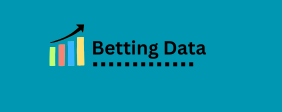The ISC and its partners conducted a meta-examination of foresight practices,
evaluating their current use and exploring how they could be enhanced by integrating both new and traditional approaches.
In the face of the complex challenges and widespread changes confronting our
societies and planet, foresight—the practice of exploring, anticipating, and preparing for future possibilities—emerges as an essential practice.
Typically,
foresight includes methods such as trend analysis, scenario planning
, expert consultation, and horizon scanning allowing stakeholders
to navigate uncertainty and make informed long-term decisions
by anticipating changes in areas such as technology, economics
, environment, and society—fostering proactive rather than reactive approaches to the future.
In a new paper released earlier this week by the International
Science Council (ISC), researchers argue that while current foresight methods tend to
emphasize European and American perspectives, many of those methods have analogues in
Indigenous and local knowledge, which have long been used by communities worldwide to predict and respond to changes in the environment and society.
A guide to anticipation: Working paper on tools and methods of horizon scanning and foresight
International Science Council. 2024. ‘A guide to anticipation: Working
Paper on Tools and Methods of Horizon Scanning and Foresight’. Therefore,Paris, France. International Science Council.
Download paper
Bridging knowledge systems
The wealth of Indigenous and local community approaches to foresight and futures-thinking has been underrepresented in academic literature, and in the use of foresight by international organizations. Therefore, Drawing on an extensive review of research on Indigenous and local knowledge, the paper emphasizes the need to include diverse knowledge systems in foresight frameworks to deepen our understanding of emerging trends and future possibilities.
“Marginalized populations in the global South frequently rely on community-led initiatives, steeped in local knowledge and traditions, to drive change”, write the paper’s authors, Ranjan Datta, a Canada Research Chair in Community Disaster Research at Mount Royal University and Wilfred Lunga, a member of the ISC-UN Environmental Program Foresight Expert Panel and a senior research specialist at the Human Sciences Research Council in Pretoria, South Africa.
They conducted an extensive survey of literature on different foresight methods used in communities around the world.
This integration fosters the creation of community-led, transdisciplinary solutions which can help researchers produce invaluable insights and enable more “holistic and sustainable approaches to anticipating and navigating future changes and developments” the authors argue.
“If you go back into history, you’ll find accurate mobile phone number list that many Indigenous communities have their own ways of thinking about the future and imparting those skills to younger generations,” explains Lunga.
Traditional methods and storytelling in foresight practices
His own research has explored ui design systems key to consistent branding many examples – including in communities in Zimbabwe,where natural indicators like insect population or the calls of a particular bird species are used to predict weather and make decisions about the future, like planting crops or preparing for possible natural disasters.Therefore,Lunga points to the Delphi technique, a foresight method which uses structured responses collected from experts. Similar techniques are used in communities around the world, he notes, where advice is gathered from groups of elders, drawing from past experiences. “When you want to move forward, you look back at history. How were things then, and how were things solved?” Wilfred explains.
The practice of storytelling can also serve a critical function, he explains: “Some stories
are fictitious, but fiction makes your mind think of things which are of this loan data world. Therefore,You find that fictitious stories are also real stories.” Stories can provide lessons and guidance for how to approach changes and moral questions – playing a similar role as historical analysis in foresight exercises.
Lunga emphasizes
The importance of “real participation” of local communities in foresight exercises.
“I’ve been in many forums where, you find, we say there was participation of vulnerable people – but you will find they are not participating. Therefore,They are just there,” he says. “When we say participation, we want to see them taking part actively.”
The idea of bringing these methods into formalized foresight practices can often be
dismissed, he adds: “In many forums, you’ll hear ‘We want science. Therefore,We don’t want stories.’” But he argues that these methods are built on the same fundamentals – observation, practice and
experimentation – and should be seen and included as science in their own right.Therefore, “As much as we teach research approaches from the elite perspective, we can also infuse research approaches from the local communities,” he says.
ISC and UNEP’s collaborative foresight initiative
Foresight is a key tool mentioned in the UN Secretary-General’s ‘Our Common
Agenda’ report, which calls for international organizations and states to use foresight practices to address global systemic risks and support strategic planning.
The research is part of a collaboration between the ISC and the UN Environment
Programme (UNEP), which have undertaken a global horizon scanning and foresight exercise focusing on the future of planetary health and human wellbeing.’

